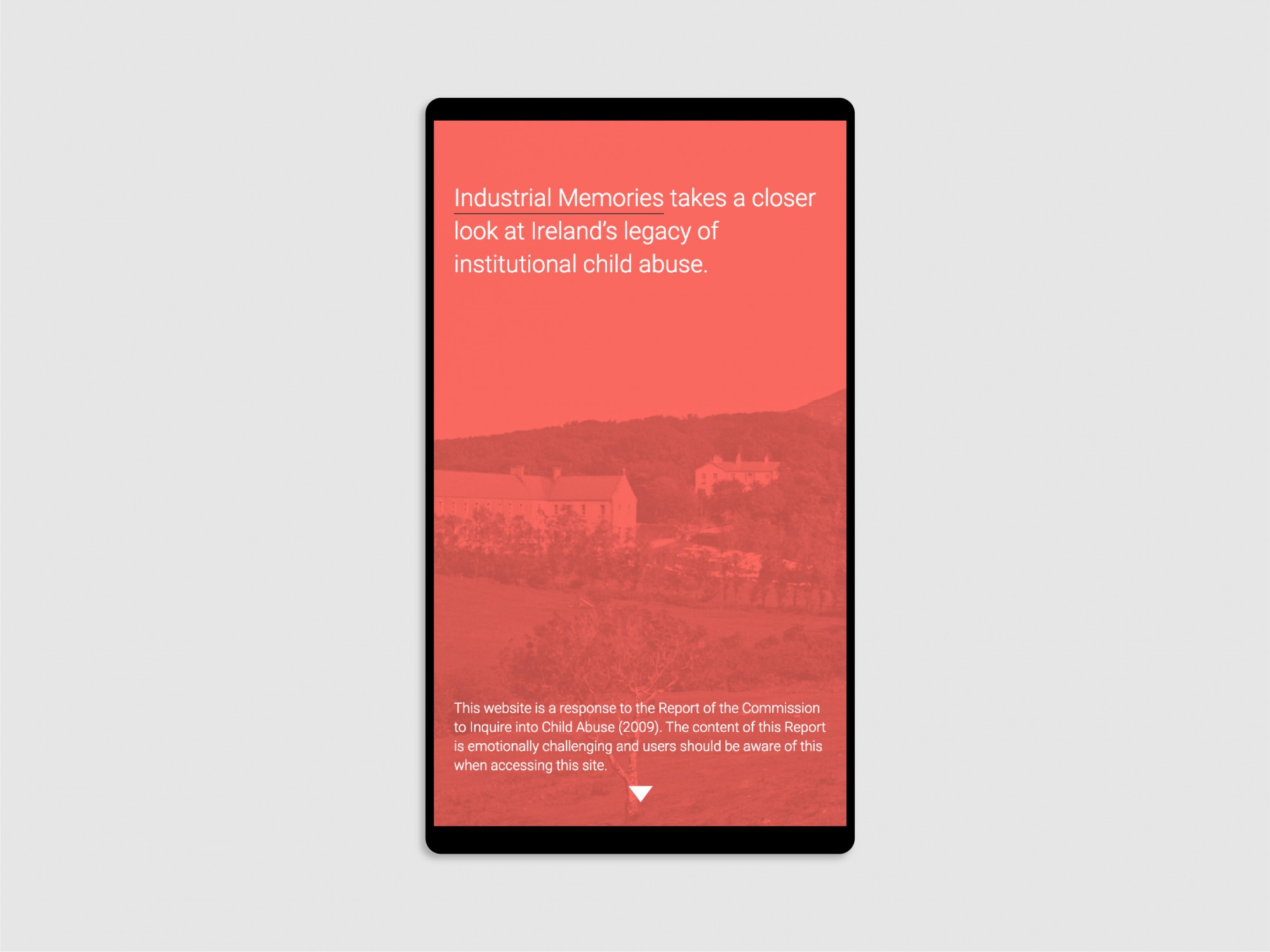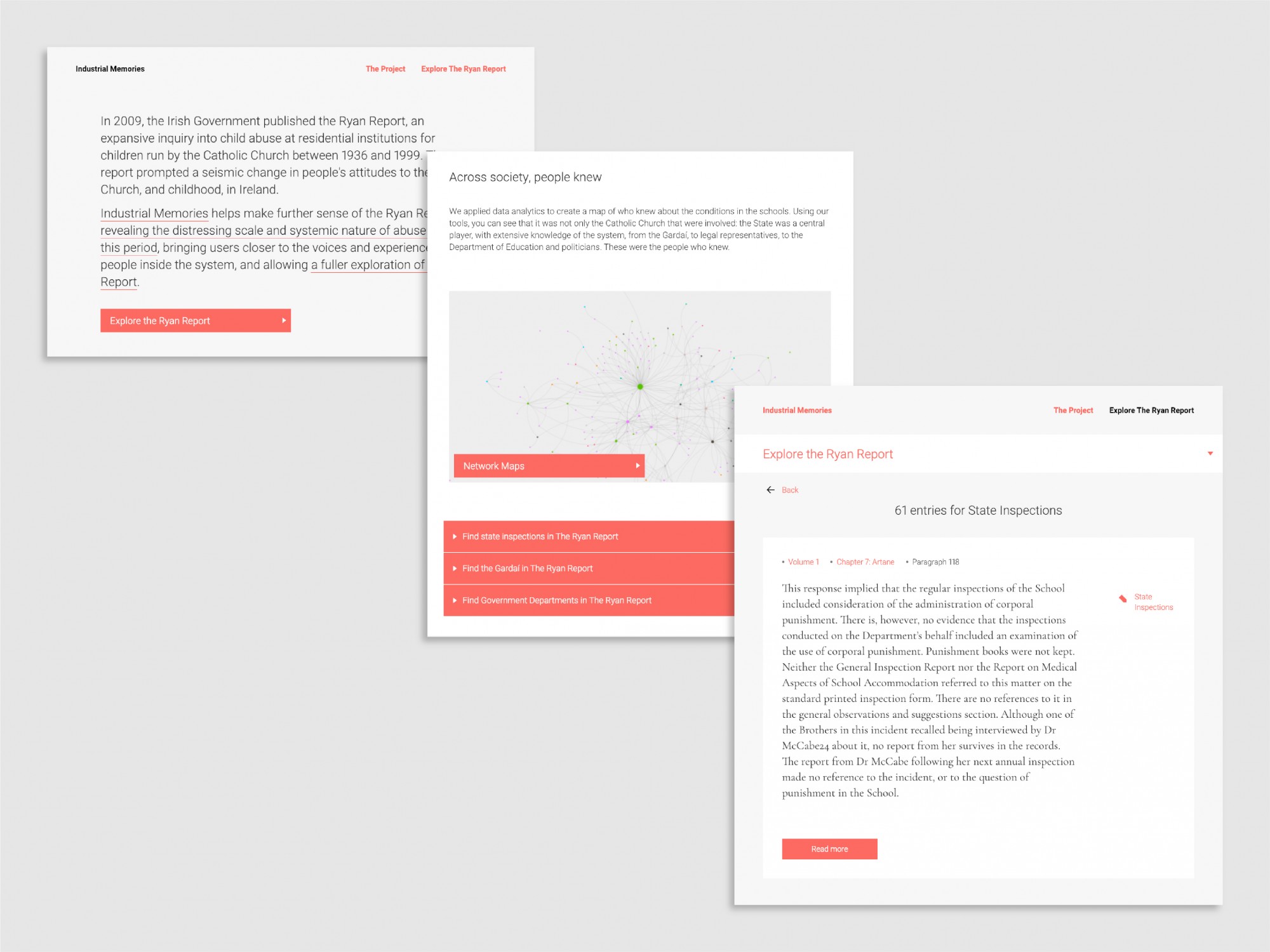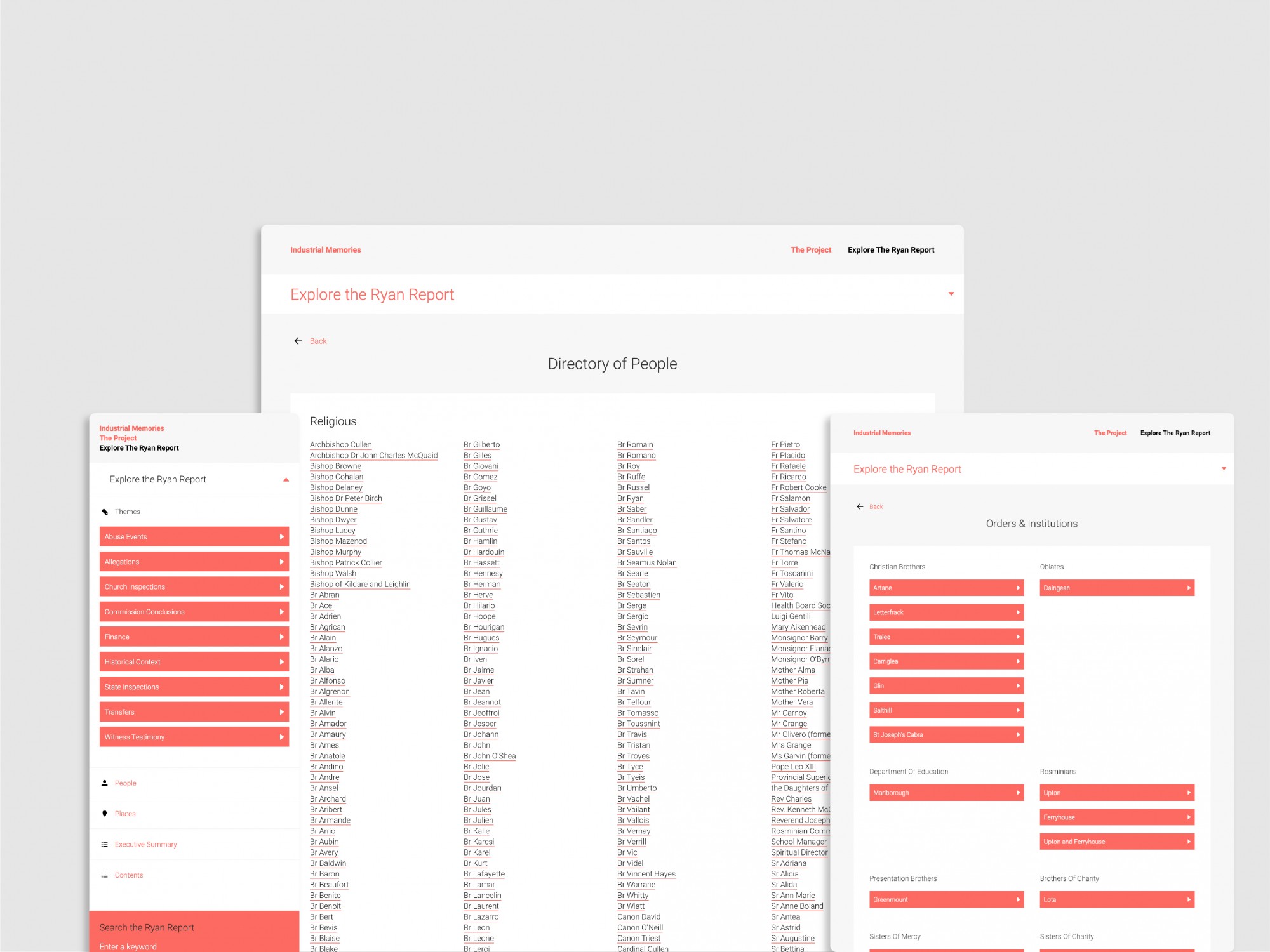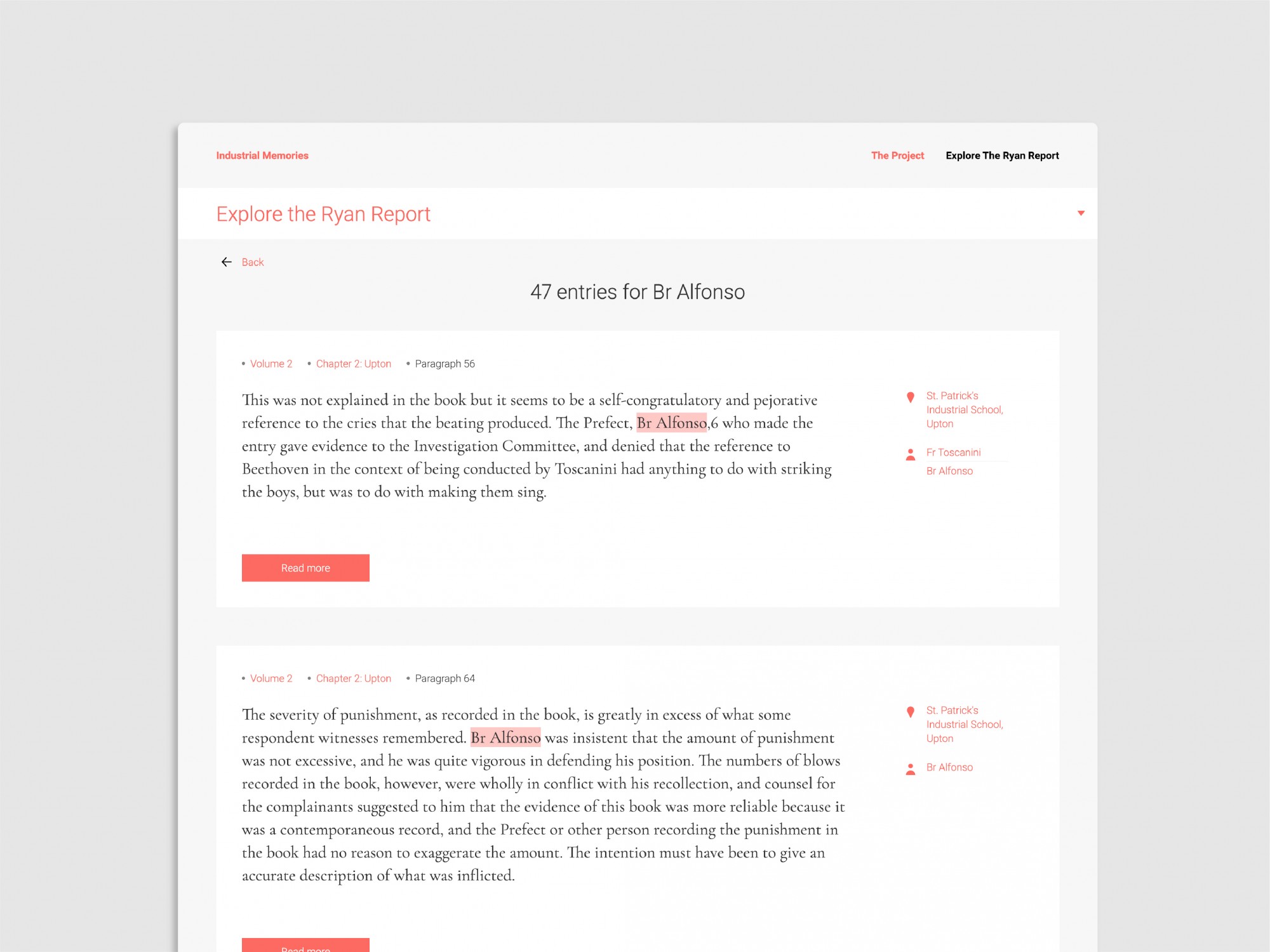Industrial Memories
Designed by Scott Burnett, Kevin Horan, Rory Bradley and Brian Heffernan at Aad
Research Project Team: Emilie Pine
Research Project Team: Mark Keane
Research Project Team: Susan Leavy
Echoes from the Past App: Tom Lane
Echoes from the Past App: Maeve Casserly
Echoes from the Past App: Mick O’Brien
Recording Artist - App: Mark FitzGerald
Recording Artist - App: Karen Ardiff
Recording Artist - App: Hilda Fay
Recording Artist - App: Úna Kavanagh
Recording Artist - App: Deirdre Molloy
I.S. Complex Explore Carriglea Team: John Buckley
I.S. Complex Explore Carriglea Team: Sharon Phelan
Categories: Website
Industry: Cultural
Website: industrialmemories.ucd.ie/
A UCD digital humanities witnessing project, Industrial Memories was a long running, in depth research project that married machine and human reading of information to analyse and better understand the Ryan Report. Breaking the report into paragraphs and indexing the datapoints allowed the team to uncover patterns that revealed the systemic nature of the abuse.
Our role was to create a website to host the database and project outcomes and ideally help the project reach and connect with people across Ireland. This presented a particular set of challenges – To translate a dense report and the results and outputs from a rigorous research project into a simple, powerful, navigable and unified experience. To build a bridge between the report, the project and the public. And to take great care and responsibility in connecting highly sensitive and deeply disturbing reports with an audience make-up that included school children and survivors of abuse.
Working closely with the research team, we explored a number of ways to structure the information, clarify the findings and host the interactions. Our subsequent approach is designed to be navigated in layers – The homepage provides context for the project, the report and the events that surrounded the abuse. A timeline places it within a historical context and a simple film brings survivors testimonies to the fore. We clarified the key findings from the research to help the audience understand in clear terms the scale and nature of the abuse. These findings also presented paths into the database and testimony.
An extended search function allows for in depth exploration of the database via a number of factors. The database results are presented to be easily readable, across all devices and bandwidths, as individual paragraphs or as a scrollable ‘revealed narrative’. Finally the visitor can cross navigate by key words, people, places and themes to reveal the full involvement of individuals and institutions.





